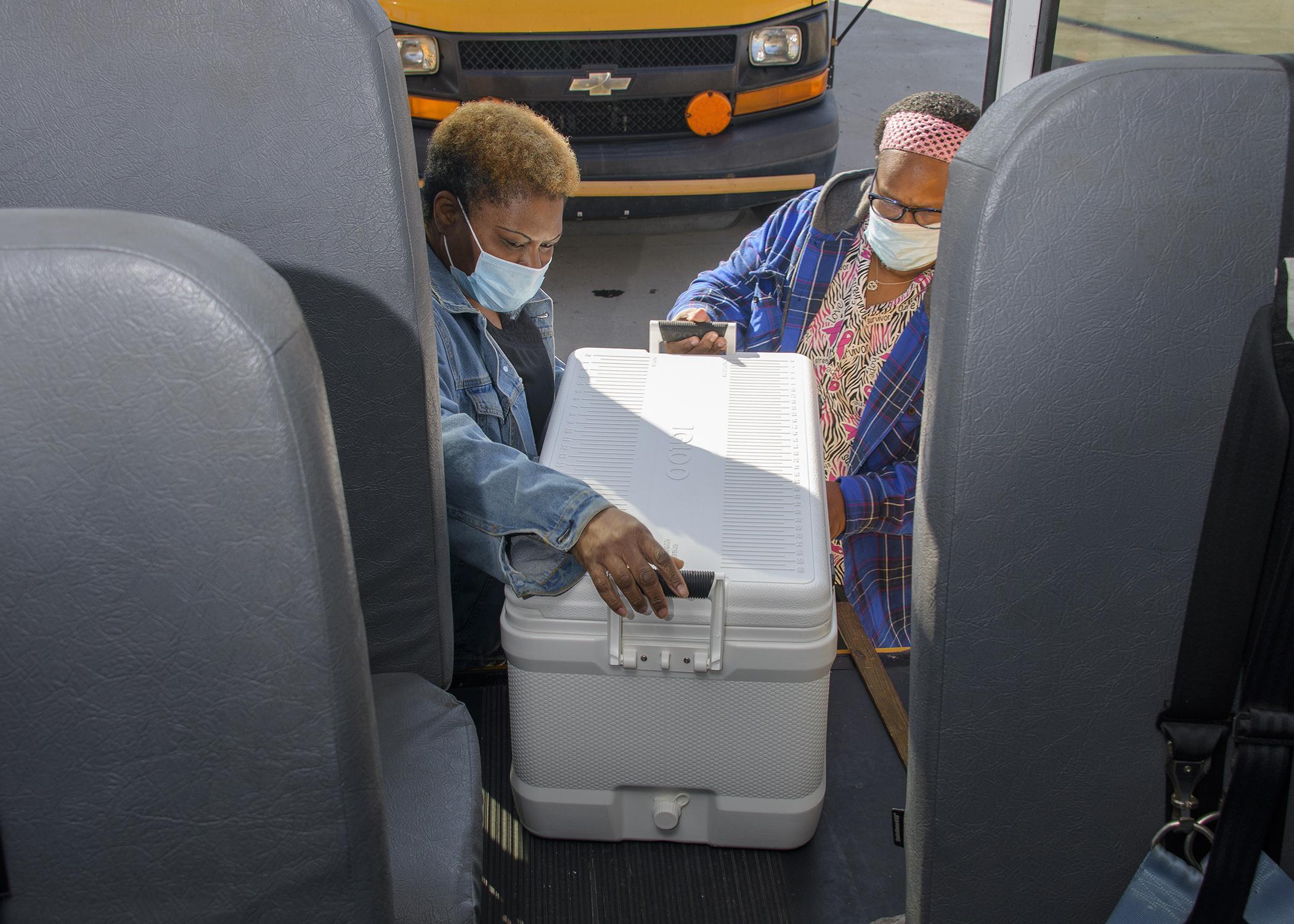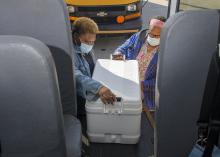Information Possibly Outdated
The information presented on this page was originally released on March 15, 2022. It may not be outdated, but please search our site for more current information. If you plan to quote or reference this information in a publication, please check with the Extension specialist or author before proceeding.
Healthy childhood development requires good nutrition, structure
STARKVILLE, Miss. -- Dependable, good nutrition is key to children’s successful development, a fact that brings hundreds of organizations and individuals into action when a disruption threatens lifelong impacts.
Such a disruption came in March 2020 when the pandemic lockdown made school virtual. Thousands of Mississippi children who relied on school cafeterias for breakfast and lunch were suddenly without a huge percentage of their daily nutrition. Many school districts leaped into action, using existing bus routes to deliver meals to students a few times a week.
David Buys, Mississippi State University Extension Service state health specialist, said such services were vitally important, especially to parents who worked hourly jobs that were shut down.
“People who are out of work are unable to buy the food they normally would to feed their family,” Buys said. “Many children rely on meals they get in public school to meet their nutritional needs. Public education is really in service to a healthy, well-equipped work force that can pour back into society.”
Qula Madkin, Extension instructor and registered dietitian at the Central Mississippi Research and Extension Center in Raymond, said good nutrition is especially important to support the rapid development that takes place during the school years.
“Children and teens need good nutrition for learning, developing and growing,” Madkin said. “It is especially important during major growth spurts that commonly occur during preteen and teen years. Consistent nutrition is important for their bodies and brains. Food is the fuel for them to reach their full physical potential.”
School meals are designed to provide balanced nutrition without including too many empty calories. Meals at home are not always as carefully planned out.
“Americans, including children, are not consuming the recommended vegetables and fruits, and most are consuming more sugar than is ideal,” Madkin said. “I encourage parents and guardians to keep their refrigerator, cabinets or freezer stocked with as many healthy options as they can and make these readily available to kids.”
Some healthy snacks include hard boiled eggs; whole grain cereal and crackers; vegetables ready for dipping; fresh or canned fruit in 100% juice; canned tuna, sardines or chicken; nuts, seeds and nut butters; and yogurt, cheese, and low-fat milk or soy milk.
“Make sure your family sees these items,” she said. “A beautiful bowl of fruit on the table or cut fruit and vegetables in the refrigerator is often hard to resist. If these healthy snacks are visible, family members are more likely to eat them. That’s the goal: encouraging children to eat more nourishing foods.”
Lori Staton, an associate professor of human development and family science, said meals are among the first things disrupted when there are life changes. For children, the disruption itself can have developmental implications.
“We all like to know what is going to come next, and this can be particularly important for children,” Staton said. “Through established, stable routines, children can gain a sense of control and safety.”
Rocking that sense of order can lead to stress and anxiety, she said. These problems affect young people’s physical and mental health, as well as their academic success.
“To have healthy, successful communities, we need healthy individuals and families,” Staton said. “It is important for adults to remember that the uncertainties caused by the pandemic are not just impacting us as adults, but also our children.
“Children look to us for answers and to see how they should behave and respond to challenges. If we want a community that is healthy and successful, we must model behaviors that show children that there are trusting, loving adults who can help them or their families navigate difficult times,” she said.
The MSU Television Center created a four-part video series that explores the issue of food insecurity in Mississippi. “The Hungriest State” is not yet available but soon can be found at . “Meals on the Bus” highlighted the example of the Starkville Oktibbeha School District.












